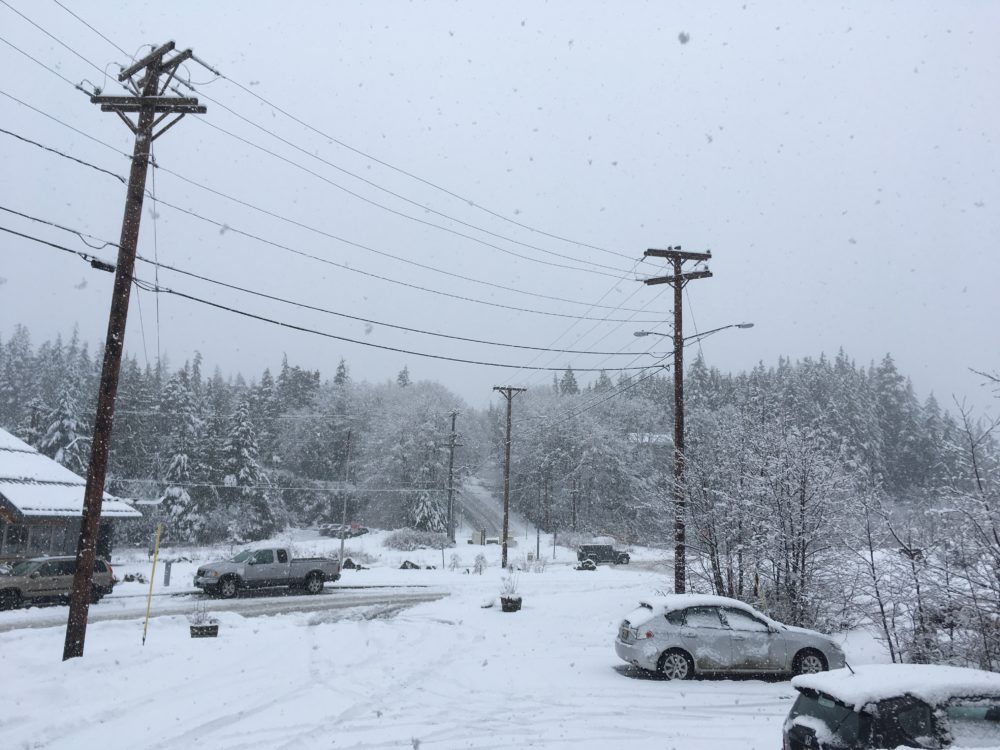
Snow continues to fall in Ketchikan Tuesday morning,. The forecast calls for it to switch to rain by afternoon. (Photo by Leila Kheiry)
With a lot of snow instead of the usual rain, Ketchikan Public Utilities Electric Division has been on diesel generation for a little more than a week, and likely will remain there at least through the end of this week.
KPU Electric Division Manager Andy Donato said the utility turned on the diesel generators full-time on March 6. When it warmed up over the weekend, they used a mix of hydroelectric and diesel, but then went back to full-time diesel on Monday.
The problem isn’t the lack of precipitation – there’s been a lot falling from the sky. It’s just been the wrong kind.
“It looks like we’ve got plenty of precipitation,” he said. “The only problem is, it’s got to find its way into the lakes. The temperature is right at the verge, right? So, up in elevation, it’s still frozen. Evenings, of course, it’s frozen.”
Donato said he hopes that, with warmer temperatures in the forecast, the utility can switch back to hydroelectric power by the  end of this week. That’s the plan for now, he said, and then they’ll take another look at lake levels early next week.
end of this week. That’s the plan for now, he said, and then they’ll take another look at lake levels early next week.
Donato said KPU gets about 50 percent of its hydroelectric generation from Swan Lake, which is owned by Southeast Alaska Power Agency. He said when the lake starts to get low, they like to keep a reserve of potential hydro power in case there’s a diesel generator malfunction, and Swan Lake is right at that reserve level now.
With all the diesel generation, there will be a surcharge on KPU customers’ bills over the next six months, but Donato said it shouldn’t be too bad, because oil prices are so low.
While the snow isn’t helping Ketchikan’s hydroelectric generation right now, it will be useful in the long run.
“Because it’s accumulating, right?” he said. “And snow pack is essential for the rest of the year.”
As the snow pack melts, it helps to keep the lakes full.
Heavy snow over the past couple of weeks caused some outages in the community, due to snow-laden trees toppling into power lines. Donato said one led to a blown transformer that caught fire and sent some surges through the lines south of town.
Those surges damaged equipment and appliances in some homes, and Donato said KPU did get some calls for claims.
“The unfortunate thing is – these are what we call ‘Acts of God’ – municipal code is written such that we are not responsible for such acts,” he said. “If it was something that KPU caused, say in the course of trying to connect something and misconnected it, then we would obviously be at fault and would be responsible for the damage, but we can’t take responsibility for the snow and snow-laden trees.”
Donato said surge protectors can help protect equipment and appliances, but they also can become less effective with time, especially if they have taken a few hits. He recommends switching out surge protectors regularly.






